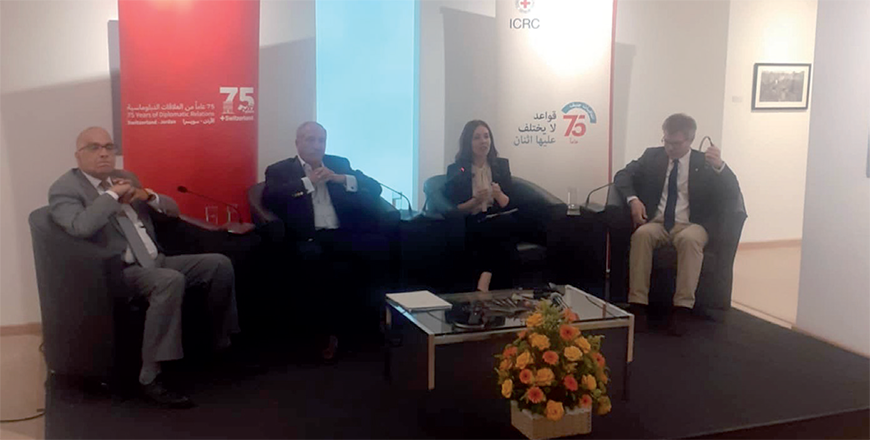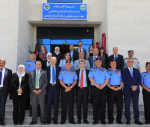You are here
Panel discussion deliberates humanitarian action in era of counterterrorism
By Saeb Rawashdeh - Oct 04,2023 - Last updated at Oct 04,2023
AMMAN — The dramatic events of September 11 and the invasion of Iraq directly affected the way humanitarian action has been conducted in the early decades of the 21st century, heard a panel discussion organised by Columbia Global Centres in Amman on Tuesday.
The panel, titled “Twenty Years on: Humanitarian Action in the Era of Counterterrorism”, discussed how the counterterrorism framework has affected patterns of humanitarian missions.
“Nineties saw lots of Western interventionism” that impacted counter-terrorist measures, said Mohamed Mahamedou, a professor from Geneva Graduate Institute of International and Development Studies.
One of measures implemented in that period were detention centres for supposed terrorists who were apprehended by different state agencies. The process intensified after September 11, 2001, with more torture and violations of humanitarian law, Mahamedou underlined.
“The legal framework for humanitarian action in armed conflict is provided by the International Humanitarian Law [IHL],” said Jelena Pejic, a former senior legal adviser at the International Committee of the Red Cross.
She added that these regulations are implemented in case of an armed conflict between states as well as armed conflict between a state and armed groups.
Violence, which includes taking human lives and destruction of objects, is always the same but the legal context changed after 9/11. Humanitarian law means to regulate violence in a way that is unique to “this reality and the new paradigm”, Pejic said.
“That law [IHL] allows violence against military objectives and combatants while it prohibits acts of violence against civilians and civilian objects,” Pejic stressed. “It’s a balance between necessity and humanity and its aim as a whole has a protective function.”
The IHL also regulates humanitarian action during a variety of conflicts and the aid to warring parties is provided by organisations that are impartial and humanitarian, Pejic added.
“There is no comprehensive definition of terrorism which makes blurring between the IHL and terrorism unbelievably extensive,” Pejic said.
Especially after 9/11, there has been a massive proliferation of measures trying to prevent bonds and other types of assets from getting to individuals or groups that are targeted by anti-terrorism measures, Emma O’Leary of the Norwegian Refugee Council said.
“One of the most well-known cases was when a small US based NGO during Obama’s administration ended up in court on the pretext of supporting a terrorist group,” O’Leary said.
Another example comes from the UK Counter-Terrorism and Border Security Bill, O’Leary continued. Introduced in 2019 the bill made it illegal to travel to areas where a terrorist activity is taking place, leaving millions of people without aid in these territories controlled by terror groups, O’Leary explained.
Related Articles
AMMAN — Jordan and the United Arab Emirates on Tuesday signed a memorandum of understanding (MoU) highlighting and spreading the principles
AMMAN — Ryanair on Thursday announced four new routes to Amman and Aqaba for winter, citing an expected rise in the number of visitors to th
AMMAN — The Swiss embassy in Jordan and Iraq, teamed up with the International Committee of the Red Cross (ICRC) in Amman and inaugurated on















